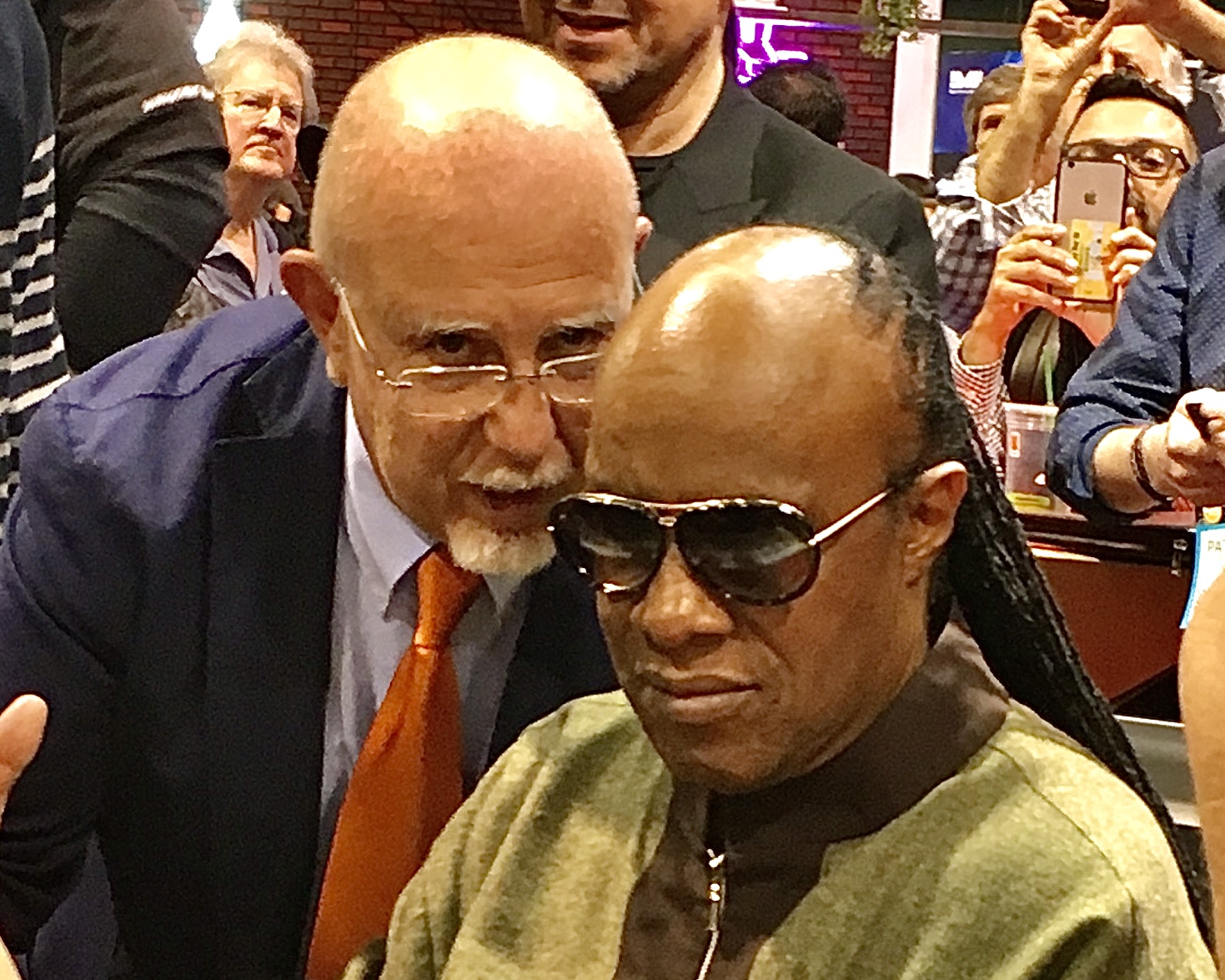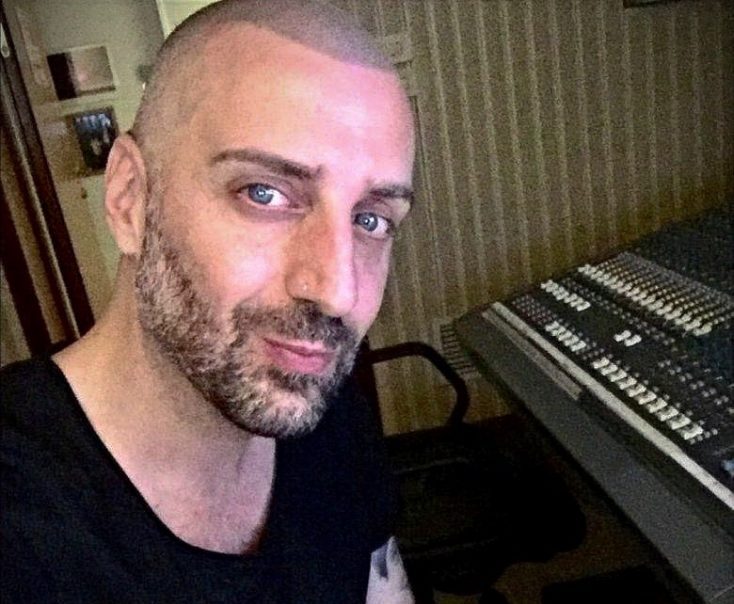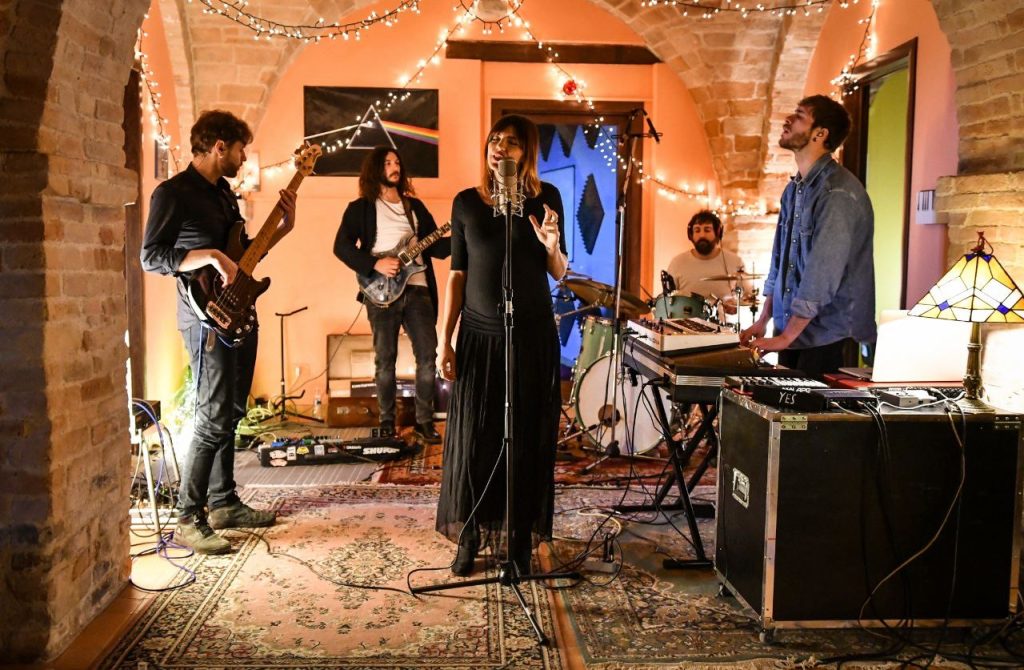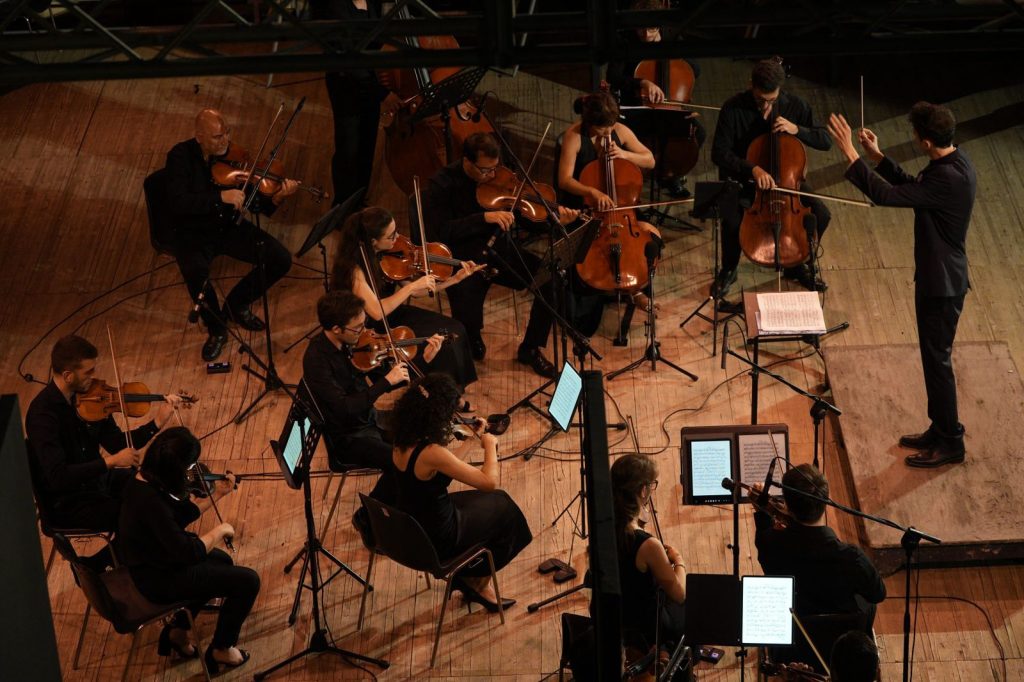Luigi Bruti negli anni ’80 con Vittorio De Scalzi dei New Trolls
The story of this studio began in the 1970s, when music was more than sound—it was a vital expression of the soul. Luigi, a young boy full of ideas, played on a worn keyboard in his small provincial town. Although limited, that place was home, and every melody born there tasted like freedom. However, recording meant leaving for cities like Rome or Milan, where studios were renowned but rigid, with strict, timed sessions leaving no room for inspiration or emotional connection.
Realizing this, Luigi dreamed not just of playing but of creating a place where music could truly come alive—a creative refuge where technology served emotion, not the other way around. Over time, the studio became a haven for musicians of all genres, where ideas were valued beyond minutes or hours. Recording was more than a task; it was a process of experimentation, conversation, and renewal.
In the end, technique existed to serve the soul. This shared dream gave birth to a studio still reflecting the vision of a boy from the ’70s who simply wanted to make music—and found a way to do so.
In 1980, Marche Recording Studio started as a small demo room created by three friends. It began with an 8-track Fostex recorder, soon replaced by a 16-track, marking the start of technical growth. During the 1990s, digital recording revolutionized the industry. Luigi embraced this, becoming Italy’s first to use hard disk digital recording. Using three Roland DM-80 units, the studio expanded to 24 digital tracks, marking the shift from analog to digital.
As DAWs and powerful computers emerged, the studio underwent further change. Luigi invested in new spaces and equipment, founding MR Studio—a blend of craftsmanship and technology. Today, MR Studio stands as a cutting-edge hub for artists, with a name honoring its roots: Marche Recording Studio.

Born in 1960 in Montemonaco, Luigi Bruti earned diplomas in Theory, Harmony, Electronic Music, Piano, and Accordion. In 1976 and 1977, he won Italian and international accordion championships. During the ’70s, he co-founded bands, recorded albums, and appeared on national TV.
Between 1978 and 1980, he composed film soundtracks, including Passione d’Amore, collaborating with Maestro Trovajoli. Later, he worked as arranger and sound engineer, shaping his unique blend of passion and innovation. In 2004, he produced Linda, who placed third at Sanremo and won Critics’ Award. He also taught Musical Acoustics at the University of Ancona.
From 1978 to 1989, Luigi worked with SIEL, helping design instruments like Cruise and Opera 6. Later, at Roland Europe (1989–2014), he served as R&D and Marketing Director, designing the Arranger Keyboard line from E-20 to G-70, filing patents worldwide, and composing demo songs.
He contributed to Roland sound samples and projects with companies like Spectrasonics. His innovations earned mention in Ikutaro Kakehashi’s book for developing the V-Accordion, highlighting his role as creator and researcher.
After Roland Europe closed in 2014, Luigi led a team to develop True to Life (T2L) for digital pianos and Harmony Poly-Fragmentor (HPF), powering XMURE—the first app with real audio accompaniments. This marked a new chapter, confirming Luigi’s innovation.
His work attracted Fabrizio Sorbi of PROEL, who acquired Roland Europe. This led to the creation of DEXIBELL, unveiled at NAMM 2016 in Los Angeles.
Come, Quando e Perche è nata la DEXIBELL:
Intervista del NAMM a Luigi Bruti
Between 2021 and 2024, Luigi led DEXIBELL’s collaboration with KORG Japan to develop FISA SUPREMA, KORG’s first digital accordion. The project merges tradition and technology, delivering unprecedented sound quality.
FISA SUPREMA features advanced bellows sensors replicating acoustic dynamics, extensive sound customization, and MIDI integration for modern production. The instrument achieved global success, confirming Luigi’s role as an innovator. It’s also ideal for soundtracks, offering realism and expression, with original arrangements performed by Luigi himself.
In a studio, an assistant is more than a technician. When also a musician, their sensitivity changes the process. They understand artists’ needs, anticipate producers, and speak the language of creation.
They do more than press “rec”; they foster creativity, knowing when to intervene or let inspiration flow. Having someone who understands music technically and emotionally makes the workflow smoother, more empathetic, and effective. In a space where art is born, this dual skill truly makes a difference.
Born in Rome in 1977, he is a musician, sound engineer, and arranger. He holds a scientific diploma and also studied architecture. Previously, he was the owner of PTSD Studio Recording in Porto d’Ascoli (2008–2015).
He composed music scores for films such as Am I Evil and The Dark Side of the Moon by Richard Terrasi (USA), both winners of international awards. Additionally, he collaborates with labels like My Kingdom Music, Aural, Audioglobe, and Soulfood for mixing, production, and arrangements.
Currently, under contract with My Kingdom Music (SPV-Sony), he has released four albums with PTSD and completed several European tours. He is a singer, drummer, sound engineer, arranger, and a certified Steinberg Cubase Studio Pro and Logic Pro X user.

Musician, sound engineer, and producer, since 2017 he has overseen productions for local artists and released singles as an author, arranger, and producer.
In particular, in his EP Diffraction, he explores electronic music and synthesizers. Furthermore, some of his tracks are included in the Resonant Music catalog in Bristol, which is dedicated to music licensing for media.
In 2019, he attended a mastering course at Massive Arts in Milan with Alberto Cutolo. Then, in 2023, he obtained his second-level academic diploma in Sound Engineering at Saint Louis College of Music in Rome, thereby perfecting his recording, mixing, and mastering skills.
Nowadays, he dedicates himself to experimental projects, teaches music production in Pescara, and also works as a live sound engineer.


Alone Again – Jade Hoffman

Orchestra da camera